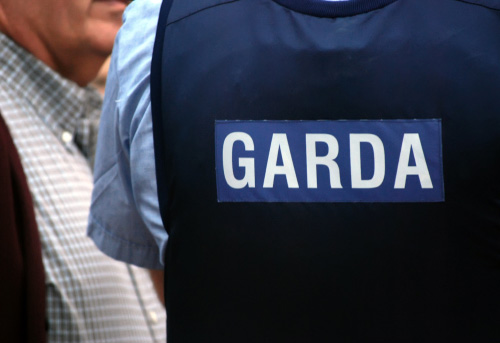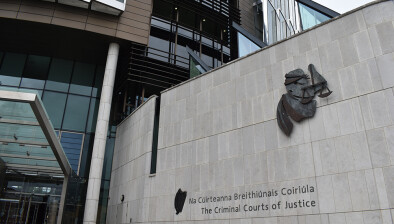Detective convicted of harassing State solicitor has conviction upheld on appeal

A detective found guilty of harassing a State solicitor by sending abusive letters and emails has lost an appeal against her conviction.
Eve Doherty, 50, was found guilty by a jury at Dublin Circuit Criminal Court of harassing State solicitor Elizabeth Howlin between September 2011 and March 2013. Ms Doherty had denied the charge.
She was found not guilty on two counts of making false statements on two dates in March 2012, in which she claimed Ms Howlin was perverting the course of justice.
At the time in question, Ms Howlin worked with the Director of Public Prosecutions (DPP) where she was involved in deciding whether or not to direct prosecutions in criminal cases. Ms Doherty held the position of detective sergeant and worked in the crime and security division of An Garda Siochana.
The trial heard that over an 18-month period, letters and emails were sent to Ms Howlin’s home, her place of work and to her GP calling her “corrupt”, an “incompetent useless hobbit” and a “two-faced bitch”.
The court heard Ms Howlin didn’t know Ms Doherty until the trial and that Ms Doherty was then in a relationship with Ms Howlin’s ex-partner.
Sentencing Ms Doherty to three years’ imprisonment in January 2018, Judge Melanie Greally said the communications by Ms Doherty contained outright and “scurrilous” lies. They contained statements which were variously disparaging, insulting and offensive, both from a personal and professional manner.
In seeking to have her conviction overturned, Ms Doherty’s lawyers argued that evidence had been adduced under the “doomed” Communications (Retention of Data) Act 2011.
Her barrister, Michael O’Higgins SC, said the 2011 Act was introduced to give effect to an EU Directive which had been “struck down” by the European courts. He said the State were aware since 2016 that the 2011 Act breached EU law and the High Court had reached the same conclusion in the case of convicted murderer Graham Dwyer last December.
Mr O’Higgins said the prosecution relied on two pieces of technical evidence - a static IP address and information related to a “hushmail” email account kept on a server in Canada. He said requests were made for the data under the “doomed” 2011 Act.
However, rejecting this argument on Friday, Mr Justice John Edwards said the data that was retained was not Ms Doherty’s personal data and, therefore, her rights were not breached.
Furthermore, he said Ms Doherty could not expect to have privacy in the internet café, in the circumstances of the case.
Counsel for the Director of Public Prosecutions, Kerida Naidoo SC, said electronically stored data was given a very clear definition in the Directive. It was personal data of an identified or identifiable natural person.
Mr Naidoo said the information relied upon was “not personal data at all” within the meaning of the Directive. None of it allowed for the accused to be identified either directly or indirectly regardless of how the data was “combined together”, he submitted.
He said all of the emails were anonymous. When they were “de-encrypted”, the only information obtained by gardaí was the IP addresses of the internet shop.
Surveillance was put in place. A camera was put into the shop. A photo of Ms Doherty was taken from that footage. On September 28, when Ms Doherty went into the internet cafe, the shop owner recognised her from the photo, and called the gardaí.
An undercover garda went in and sat next to Ms Doherty, or close to her. She was wearing a wig and dark sunglasses. She was followed home.
That was “real world” evidence that had nothing to do with personal data, Mr Naidoo said.
Mr O’Higgins had further submitted that the trial judge erred on the definition of harassment. He said the definition of harassment did not include what might be called “indirect harassment” and this had been acknowledged by the Law Reform Commission.
Thirdly, he submitted that the trial judge erred in failing to exclude a wide variety of evidence such as typed and handwritten documents found in Ms Doherty’s possession, in the absence of evidence that the documents were written by her.
He said the prosecution relied on a witness, who had no particular expertise, to highlight typos and “idiosyncrasies” in the documents. They were seeking to show commonalities in the documents to suggest a common author.
Mr O’Higgins further submitted that the trial judge erred in failing to exclude evidence of an email purportedly written by Ms Doherty in which certain comments were made about the then Garda Commissioner Martin Callinan. Mr O’Higgins said his client’s right to privacy in the sending of the non-criminal email was breached.
In his judgment running to more than 100 pages, Mr Justice Edwards dismissed all of Doherty’s grounds of appeal and upheld her conviction. The judgment was delivered alongside Mr Justice George Birmingham, the president of the Court of Appeal, and Ms Justice Isobel Kennedy.
Ruaidhrí Giblin, Ireland International News Agency Ltd.









